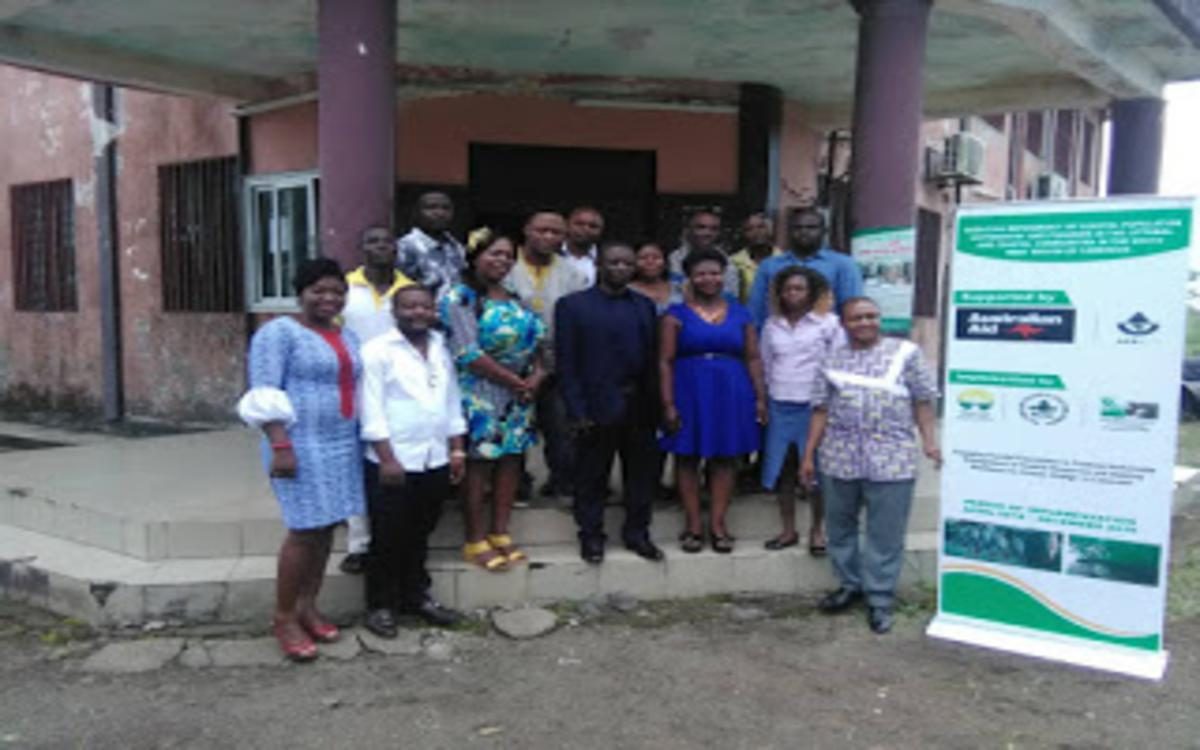
Building Coastal Communities’ Resilience using Solar Energy
This scientific research conducted by the Climate Change Mitigation and Adaptation NetworK (C3MAN) studies the efficiency of renewable energy in fish drying in order to curb the destruction of the mangrove wood for fish smoking.


Overview of the project
IUCN (2001), reported a global crisis in the marine environment, highlighting the need for urgent action, with 10% of the world’s coral reefs, irreparably degraded and half of the world’s coastal mangroves cleared and converted to other uses. However, there has been insufficient progress in addressing these impacts, and recent assessments: despite numerous government pledges, biodiversity loss is accelerating in most regions of the world (IPBES, 2019)
Overfishing, coupled with damaging fishing practices,have led to reductions in many of the world’s major fisheries, along with significant habitat destruction. These effects are also seen in coastal ecosystems, notably on mangrove ecosystems. These ecosystems have benefits as natural carbon sinks, but they also play a key role in natural adaptation. They reduce the impacts of storm surges and coastal erosion and thus have key ecosystem service benefits. This study reports on one such example, where the interaction of human activity is exacerbating climate risks, with the felling of mangrove trees for use in fish drying. The study has considered new approaches for reducing climate risks as well as addressing underlying development pressures, with an analysis of the introduction of renewable energy as fuel for fish drying.
Scientific research on the efficiency of renewable energy in fish drying in order to curb the destruction of the mangrove wood for fish smoking.
Pilote operation, experimentation
10/05/2018 - 6/1/2019
Use of hybrid solar dryer to dry fish in 3 hours as opposed to 48 – 54 hours using the traditional oven.
The dried fish is of better quality
Fish oil can be collected in the process
This project has been financed by IDRC through the African Climate Leadership Program (AfriCLP)
organisation

This organization has as principal objectives to:
Create awareness on Climate Change
Strengthen the capacity of civil society to mitigate and adapt to climate change and fostering adaptive capacity among the most vulnerable groupe
Create community based adaptation groups development in climate change adaptation throughout the country
Policy and advocacy, development of national and sub regional networks
Support grass root adaptation work with local communities within vulnerable ecosystems
Organize trainings on climate change
Organize seminars/workshops, debates, national and conferences on climate change
Conduct research in climate change
Participate in REDD and REDD+ activities
Collaborate with other organizations with similar interest
Participate in national, regional and international forum on climate change


